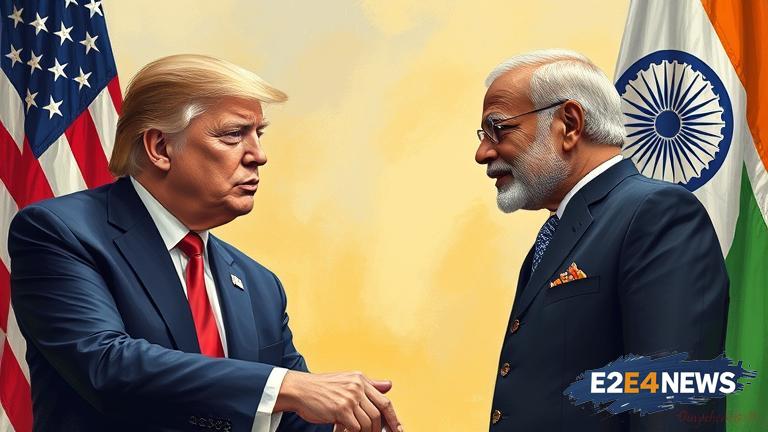The United States has found itself at odds with India after President Trump lashed out at New Delhi for its decision to purchase oil from Russia. This move has been met with criticism from Indian experts, who argue that the US is attempting to strong-arm India into complying with its sanctions on Russia. Sushant Sareen, a senior fellow at the Observer Research Foundation, has hit out at the US, stating that the country has ‘just lost India’ due to its aggressive stance. The row has sparked concerns over the future of US-India relations, with many warning that the diplomatic fallout could have far-reaching consequences. India has long maintained a policy of non-alignment, and its decision to purchase oil from Russia is seen as a pragmatic move to secure its energy needs. However, the US has been critical of India’s stance, with President Trump accusing New Delhi of being ‘uncooperative’ in its efforts to isolate Russia. The US has imposed sanctions on Russia in response to its actions in Ukraine, and has been pushing its allies to comply with these sanctions. India, however, has refused to toe the US line, arguing that its energy needs take precedence over geopolitical considerations. The diplomatic row has sparked a heated debate in India, with many experts arguing that the US is attempting to bully New Delhi into submission. Others have warned that the US is playing a dangerous game, as its aggressive stance could push India further into the arms of Russia and China. The US has long seen India as a key partner in its efforts to counterbalance the growing influence of China in the region. However, the current diplomatic row has raised questions over the future of this partnership. India has been seeking to diversify its energy sources, and its decision to purchase oil from Russia is seen as a key part of this strategy. The US, however, has been critical of India’s decision, arguing that it undermines the effectiveness of its sanctions on Russia. The diplomatic fallout has also sparked concerns over the impact on bilateral trade between the two nations. The US is one of India’s largest trading partners, and any disruption to trade relations could have significant economic consequences. Despite the diplomatic row, India has maintained that it will continue to pursue its national interests, even if this means going against the wishes of the US. The country has a long history of non-alignment, and its decision to purchase oil from Russia is seen as a reflection of this policy. The US, however, has been warned that its aggressive stance could have far-reaching consequences, including the potential for India to seek closer ties with Russia and China. As the diplomatic row continues to simmer, many are watching with bated breath to see how the situation will unfold. The US has been urged to adopt a more nuanced approach, one that takes into account India’s energy needs and its commitment to non-alignment. However, with President Trump at the helm, it remains to be seen whether the US will be willing to adopt a more conciliatory tone. The diplomatic fallout has also sparked concerns over the impact on regional security, with many warning that the US is playing a dangerous game. The US has long seen India as a key partner in its efforts to counterbalance the growing influence of China in the region. However, the current diplomatic row has raised questions over the future of this partnership. As the situation continues to unfold, one thing is clear: the US has sparked a diplomatic row with India, and it remains to be seen how the situation will be resolved.





